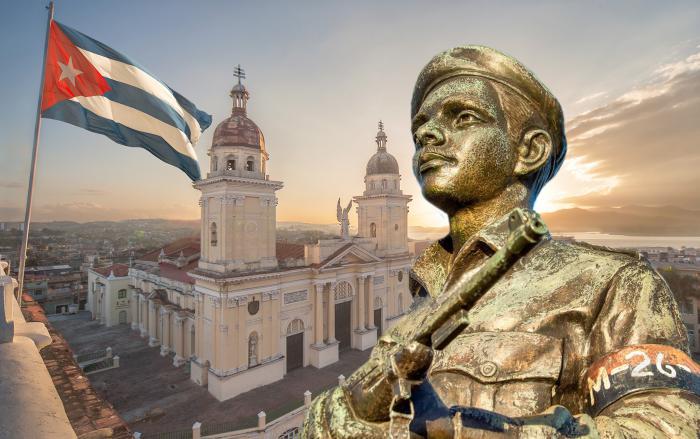
If for Fidel he was "the most valuable, the most useful, the most extraordinary of our combatants," and Raul defined him as "brave to the point of recklessness and... the kind of man who penetrates deeply and definitively into the heart of the people," the affection with which Cuba remembers Frank Pais makes him "unforgettable."
He had barely reached 18 years of age on July 26, 1953, when, awakened by the sound of gunshots from the Moncada, he knew that he, too, would join the battle against the Batista's dictatorship. With that passion, his reason for being, he entered immortality just four years later, assassinated on the streets of Santiago de Cuba, Tuesday, July 30, 1957.
His absolute dedication, sense of responsibility and unquestionable leadership made possible the uprising of November 30, 1956, to support the landing of the Granma expedition, and the many indispensable deliveries of weapons and soldiers to the nascent Rebel Army.
Prison did not dull his resolve: "The day there is only one Cuban left who believes in this revolution, that Cuban will be me," he said, despite the fierce persecution he faced.
They say that the shots fired by cowardly criminals that took his life provoked in every corner of the city a sense of foreboding, then sharp pain, more terrible in the chests of his comrades and companions in the struggle, his sweetheart and mother who plugged, one by one, the 36 perforations in the body of her beloved son.
The crowd shouting revolutionary slogans in his burial procession and that of his fallen comrade, Raul Pujol, as the dictatorship’s henchmen looked on, made clear that Frank Pais remained alive in the memory of his honorable people.
He is a symbol of the best of his generation. The date of his death was chosen for Martyrs of the Revolution Day in Cuba, with Frank atop the list, still standing tall, impetuous and mobilizing us, in every hour of danger the homeland faces.















